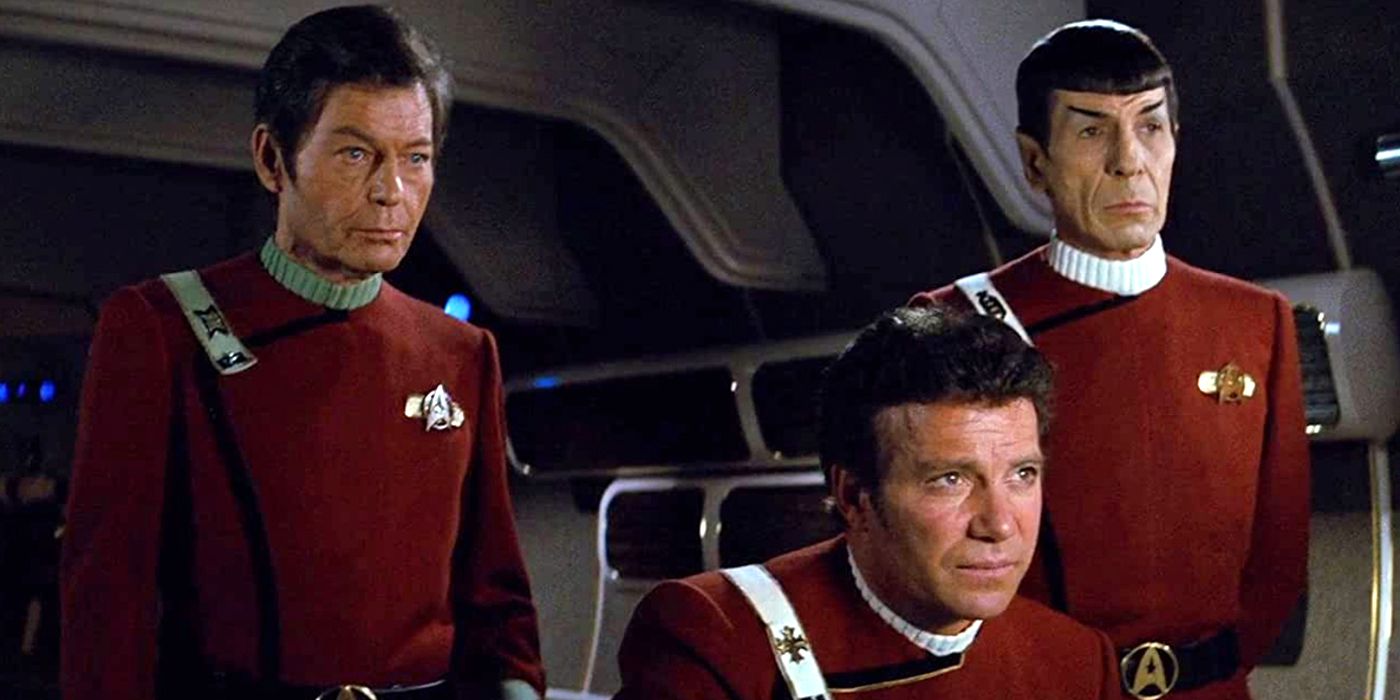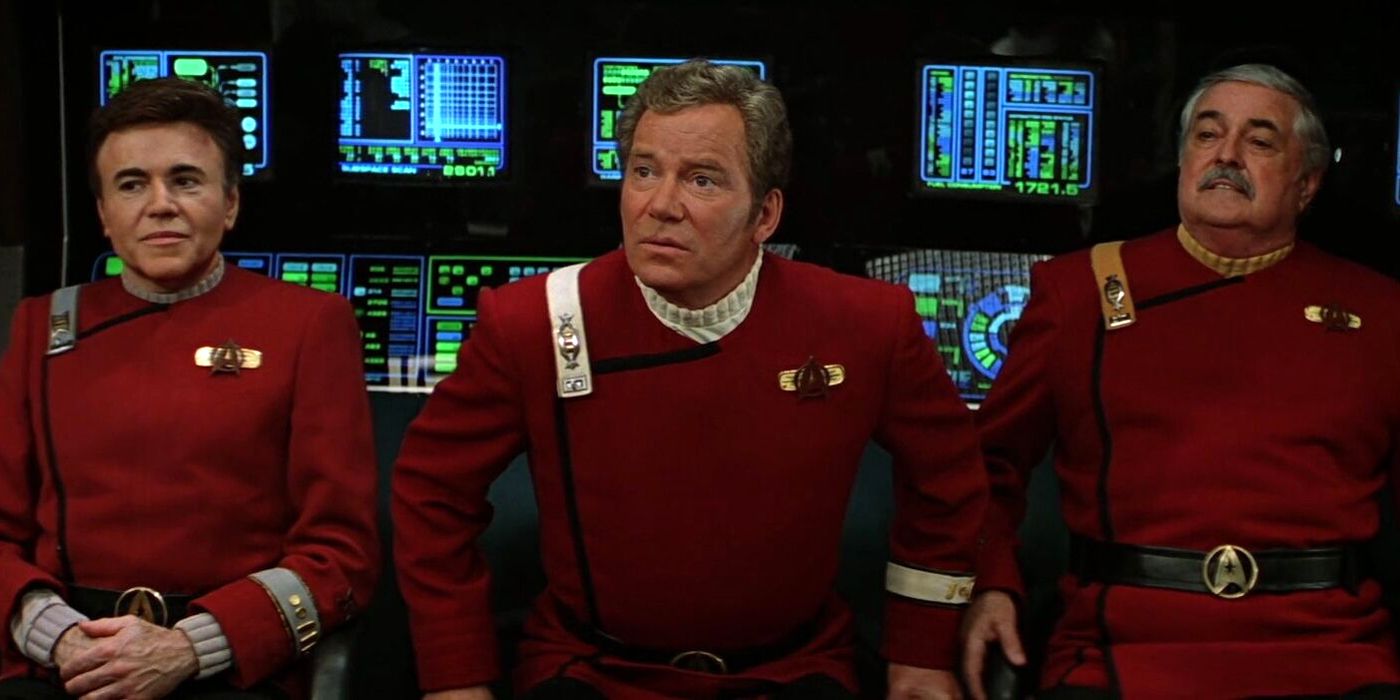
Although Star Trek Generations saw the return of the original series star William Shatner, the iconic actor wasn’t joined by colleagues Leonard Nimoy and DeForrest Kelley. Instead, Shatner appeared alongside Walter Koenig and James Doohan, who reprised their roles as Chekov and Scott respectively. Paramount Studio’s original plan was for the entire cast of Star Trek: The Original Series to appear in Generations in order to pass the torch to the TNG crew. However, it soon became clear that several original members were unhappy at the prospect.
Released in 1994, Star Trek Generations marked Star Trek: The Next Generation’s leap to the big screen. Not only was it the first and only meeting between Shatner’s Captain James T. Kirk and Patrick Stewart’s Captain Jean-Luc Picard, but Star Trek Generations also climaxed with the death of Captain Kirk. As the screenplay took shape, it became clear that other TOS legends would appear in the film’s prologue set in the 23rd century, with Kirk moving into the 24th century to meet Picard and heroically die fighting the film’s villain, Dr. Tolian Soran (Malcolm McDowell).
As a result of this change, the challenge of finding adequate roles in the story for every member of the TOS cast proved incredibly difficult. Many of the classic Star Trek actors were disappointed that their appearances basically amounted to cameos instead of sharing equal screen time with The Next Generation‘s cast. However, the studio was adamant that Star Trek Generations primarily focused on TNG‘s actors since they would carry the Star Trek movie franchise forward. As a result, and despite the integral William Shatner signing on, both Leonard Nimoy and DeForrest Kelley decided not to appear in the film.

In The Fifty-Year Mission: The Next 25 Years oral history of Star Trek by Mark A. Altman and Edward Gross, DeForrest Kelley explained that he was disappointed that Dr. Leonard McCoy and his crewmates only appeared in one scene, commenting: “When I read the script and saw we were only in the first ten minutes, I thought it was best to pass and go out with [Star Trek] VI.” At that time, Kelley didn’t know that Nimoy also said no and he admits, “I certainly wouldn’t have done the film without him in it.” Both Kelley and Nimoy agreed that the well-received Star Trek VI: The Undiscovered Country was a rousing and satisfying farewell for the original cast.
Leonard Nimoy’s issues with Star Trek Generations ran deeper than simply disliking Spock’s minor role in the story. Not only was he not happy that the Vulcan had what amounts to an inconsequential cameo, but he had also been Paramount’s original choice to direct the movie. However, Nimoy, who both developed the story and directed the incredibly successful Star Trek IV: The Voyage Home and Star Trek VI, hated the screenplay for Star Trek Generations. When producer Rick Berman refused to change the script, Nimoy walked away from Star Trek Generations entirely. In fact, Nimoy went on to candidly voice his disdain for Star Trek Generations in The Fifty-Year Mission, revealing: “My feeling about Generations is very negative… Generations bothered me. My God, what are they doing? Why that scene? What’s this scene about? Where are they going with this? That was the reason I wasn’t involved in making it.”
For his part, William Shatner tried to get Leonard Nimoy and DeForrest Kelley to sign onto the film anyway, but to no avail. Instead, the only actors featured in the Star Trek Generations scene aboard the USS Enterprise-B with Captain John Harriman (Alan Ruck) were James Doohan as Scotty and Walter Koenig as Chekov. It was especially bizarre for Trekkers to see Kirk joined by Scotty and Chekov instead of Spock and Bones since Doohan and Koenig had long-standing personal issues with Shatner. Star Trek Generations ultimately delivered on its gimmicky conceit, but unfortunately, audiences never got a true Star Trek crossover movie where The Next Generation meets The Original Series casts that they, as well as Leonard Nimoy and DeForrest Kelley, hoped for.